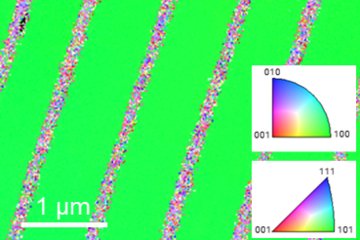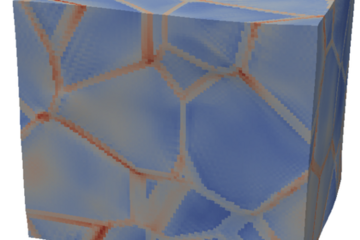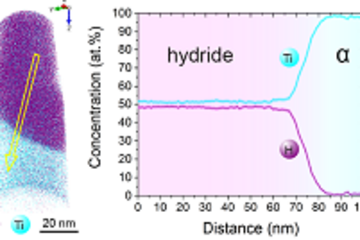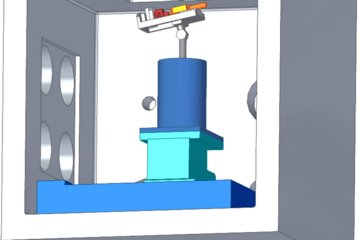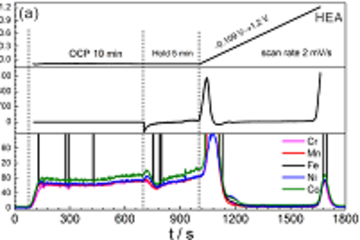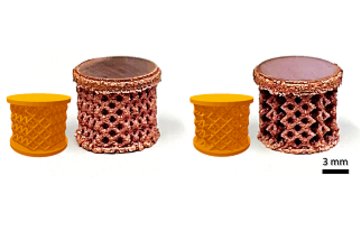All genres
241.
Talk
Online investigation of the stability of electrode materials by coupling of SFC - ICP-MS. Seminar Talk at University of Ulm, Ulm, Germany (2011)
242.
Talk
Activity and stability of Pt-alloy nanoparticles for fuel cell reactions. 14. Österreichische Chemietage 2011 / Austrian Chemistry Days, Linz, Austria (2011)
243.
Talk
Catalysis in electrochemical reactors - Fundamental investigations for real applications. Seminar talk at Fritz-Haber-Institut der MPG, Berlin, Germany (2011)
244.
Talk
Role of Support Interactions for Activity and Stability of Fuel Cell Catalysts. ACS 15th Annual Green Chemistry & Engineering Conference, Washington, D.C., USA (2011)
245.
Talk
Electrode Materials for Electrochemical Energy Conversion. 15th Annual Green Chemistry & Engineering Conference, Washingtion D.C., USA (2011)
246.
Talk
Electrocatalysis of PEM fuel cell reactions – fundamental investigations for real applications. 9th European Symposium on Electrochemical Engineering, Chania, Greece (2011)
247.
Talk
Oxygen reduction reaction: Surface coverage vs. activity. 8th Greek Conference of Chemical Engineering, Thessaloniki, Greece (2011)
248.
Talk
Corrosion behaviour of iron-based metallic glasses during crystallization. BMG8, The 8th International Conference on Bulk Metallic Glasses, Hong Kong, China (2011)
249.
Talk
Elektrochemische Hochdurchsatzuntersuchungen mit gekoppelter online Analytik. 4. Korrosionsschutz-Symposium - Korrosionsschutz durch Beschichtungen in Theorie und Praxis, Trent, Rügen (2011)
250.
Talk
Degradation of carbon-supported fuel cell catalysts. Fundamentals and Developments of Fuel Cells, Grenoble, France (2011)
251.
Talk
IL-TEM for the investigation of nanoparticle corrosion. Seminar Talk at Rheinische Friedrich-Wilhelms-Universität, Bonn, Germany (2011)
252.
Talk
Identical-Location Microscopy for the investigation of corrosion processes. 61st Annual Meeting of the International Society of Electrochemistry, Nice, France (2010)
253.
Talk
The particle-size effect in electrocatalysis. Seminar lecture, National Institute of Chemistry, Ljubljana, Slovenia (2010)
254.
Talk
Stability of Pt alloy high surface area catalysts. 217th ECS Meeting, Vancouver, Canada (2010)
255.
Talk
IL-TEM for the investigation of corrosion. ISE meeting, Nice, France (2010)
256.
Poster
In-operando photocorrosion study on BiVO4 photoanodes. International Bunsen Discussion Meeting, Taormina, Italy (2019)
257.
Poster
Microstructure characterization on electrodes and catalysts. Chinese-German Chemical Association (CGCA) 30th Annual Conference, Berlin, Germany (2018)
258.
Poster
Cs corrected STEM analysis – operation related nanoscale degradation processes in high-temperature polymer-electrolyte-membrane fuel cells. Microscopy Conference 2017 (MC 2017), Lausanne, France (2017)
259.
Poster
Electrochemical water based in-situ TEM: case study of platinum based nanoparticles potential- and time-dependent changes. IAM Nano 2015 , Hamburg, Germany (2015)
260.
Poster
Platinum dissolution in presence of chlorides. 3rd Ertl Symposium on Surface Analysis and Dynamics
, Berlin, Germany (2014)




